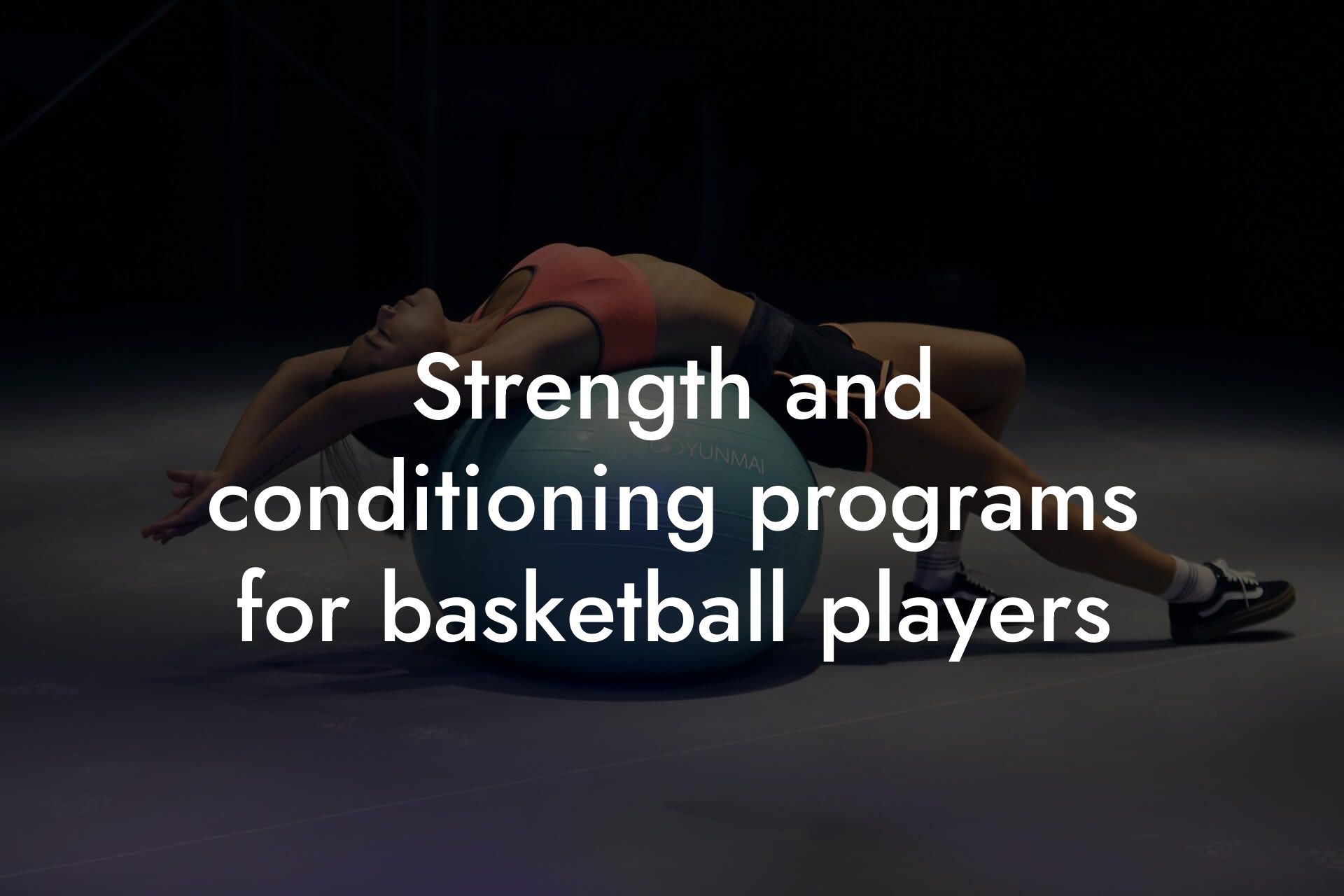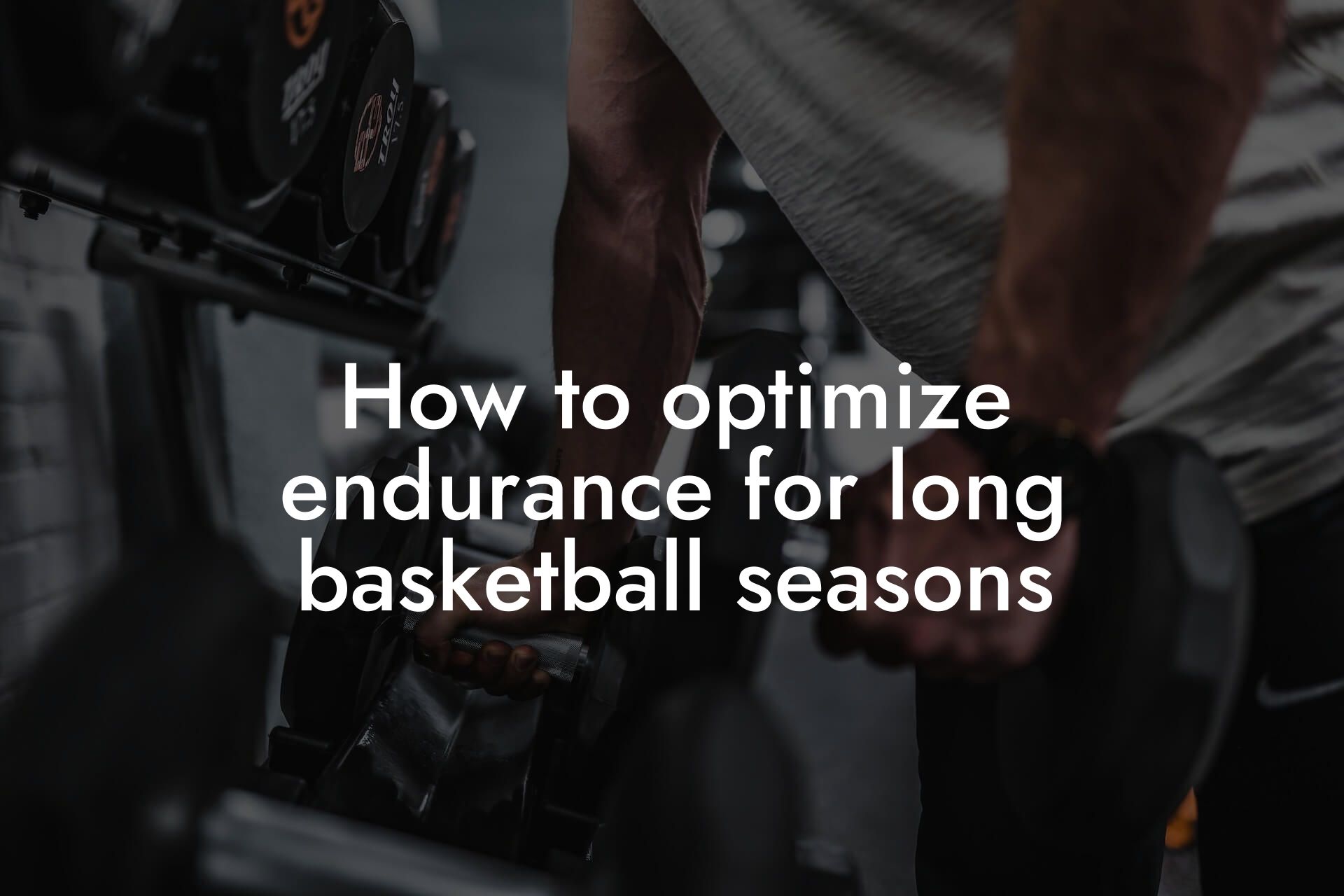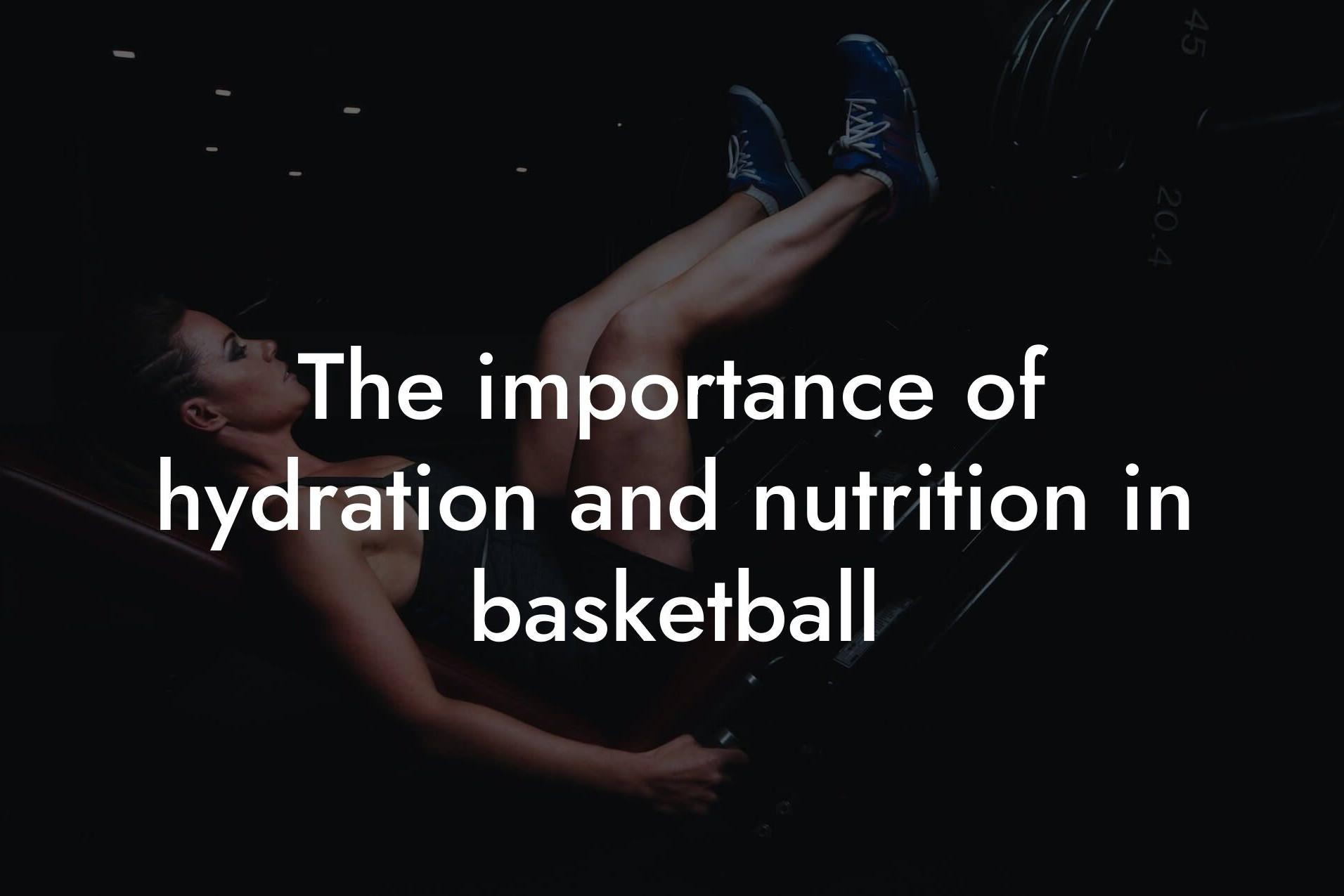As a high-earning professional, you understand the importance of maintaining a healthy and strong physique to excel in your career. However, as a basketball player, you're also aware of the physical demands of the sport, which can put your bones at risk of injury. Maintaining bone density is crucial to prevent injuries and ensure a long and successful basketball career. In this article, we'll explore the importance of bone density, the risks of low bone density, and provide you with actionable tips to maintain strong bones and prevent injuries on the court.
Table of Contents
Why Bone Density Matters in Basketball
Bone density refers to the amount of minerals, such as calcium and phosphorus, in your bones. Having strong bones is essential for basketball players, as they absorb the impact of jumps, landings, and quick changes of direction. Low bone density can lead to an increased risk of fractures, osteoporosis, and other bone-related injuries. As a basketball player, you're at a higher risk of bone injuries due to the repetitive stress and impact on your joints.
The Risks of Low Bone Density in Basketball
Low bone density can have severe consequences for basketball players. Some of the risks include:
• Stress fractures: Weakened bones are more prone to stress fractures, which can occur due to repetitive stress and impact.
• Osteoporosis: Low bone density can lead to osteoporosis, a condition characterized by brittle and porous bones.
• Bone bruises: Bone bruises can occur due to trauma or repetitive stress, leading to pain and inflammation.
• Season-ending injuries: Severe bone injuries can end your season prematurely, affecting your career and overall well-being.
Factors Affecting Bone Density in Basketball Players
Several factors can affect bone density in basketball players, including:
• Genetics: Genetic predisposition can play a role in bone density.
• Nutrition: A diet lacking essential nutrients, such as calcium and vitamin D, can negatively impact bone density.
• Hormonal imbalances: Hormonal imbalances, particularly low testosterone levels, can affect bone density.
• Age: Bone density naturally decreases with age, making older players more susceptible to bone injuries.
• Training and playing style: Players who engage in high-impact training and playing styles are more likely to experience bone injuries.
How to Maintain Strong Bones for Basketball
Maintaining strong bones requires a combination of proper nutrition, regular exercise, and lifestyle changes. Here are some tips to help you maintain strong bones:
• Calcium and vitamin D supplementation: Ensure you're getting adequate calcium and vitamin D through your diet or supplements.
• Resistance training: Engage in resistance exercises, such as weightlifting, to strengthen your bones and muscles.
• High-impact exercises: Incorporate high-impact exercises, like jumping and running, into your training to stimulate bone growth.
• Proper footwear: Wear shoes with adequate support and cushioning to reduce the impact on your joints.
• Rest and recovery: Allow your body time to rest and recover, as excessive training can lead to bone fatigue.
DEXA Scans for Bone Density Analysis
At Tano Performance Group, we understand the importance of monitoring bone density to prevent injuries. Our DEXA machine provides a comprehensive body assessment, including bone density analysis. A DEXA scan can help identify areas of low bone density, allowing you to take proactive steps to maintain strong bones and prevent injuries.
Creating a Bone-Friendly Training Program
A well-structured training program can help maintain strong bones and prevent injuries. Here are some tips to create a bone-friendly training program:
• Periodization: Alternate between high-impact and low-impact training to avoid bone fatigue.
• Progressive overload: Gradually increase the intensity of your training to stimulate bone growth.
• Functional exercises: Incorporate functional exercises, such as squats and lunges, to strengthen your bones and muscles.
• Active recovery: Engage in low-impact activities, like cycling or swimming, to aid in recovery and maintain bone health.
Maintaining strong bones is crucial for basketball players to prevent injuries and ensure a long and successful career. By understanding the importance of bone density, identifying the risks of low bone density, and incorporating bone-friendly training and nutrition habits, you can reduce your risk of bone injuries and excel on the court. At Tano Performance Group, we're committed to helping you achieve your fitness goals and maintain optimal bone health. Contact us today to schedule a DEXA scan and take the first step towards a stronger, healthier you.
Frequently Asked Questions
What is bone density and why is it important for basketball players?
Bone density refers to the measure of how dense and strong your bones are. As a basketball player, maintaining healthy bone density is crucial because it can help prevent injuries, particularly those related to osteoporosis, stress fractures, and bone breaks. Strong bones can also improve your overall performance and reduce your risk of developing chronic conditions like osteoarthritis.
What are the risk factors for low bone density in basketball players?
Risk factors for low bone density in basketball players include inadequate calcium and vitamin D intake, a diet low in fruits and vegetables, a sedentary lifestyle, and a family history of osteoporosis. Additionally, athletes who experience amenorrhea (loss of menstrual cycle) or have a history of stress fractures are also at a higher risk.
How does basketball affect bone density?
Basketball is a high-impact sport that can put a lot of stress on your bones, particularly your hips, knees, and ankles. Repeated jumping, landing, and quick changes of direction can cause micro-fractures in your bones, leading to a decrease in bone density over time. However, basketball can also help improve bone density if you're doing it correctly, with proper training and nutrition.
What are the consequences of low bone density in basketball players?
The consequences of low bone density in basketball players can be severe, including an increased risk of stress fractures, osteoporosis, and chronic pain. Low bone density can also lead to a decline in athletic performance, reduced mobility, and a decreased quality of life.
How can I maintain healthy bone density as a basketball player?
To maintain healthy bone density as a basketball player, focus on a balanced diet rich in calcium and vitamin D, engage in regular exercise that includes weight-bearing activities, and avoid excessive alcohol consumption and smoking. Additionally, ensure you're getting enough sleep and managing your stress levels.
What are some exercises that can help improve bone density?
Exercises that can help improve bone density include weight-bearing activities like squats, lunges, and deadlifts, as well as high-impact exercises like jumping and running. Resistance band exercises and plyometric exercises like box jumps can also be beneficial. It's essential to incorporate a variety of exercises into your training program to target different muscle groups and bone sites.
How does nutrition play a role in maintaining bone density?
Nutrition plays a critical role in maintaining bone density. A diet rich in calcium, vitamin D, and other essential nutrients like magnesium, potassium, and vitamin K can help promote bone health. Foods that are rich in these nutrients include dairy products, leafy greens, and fortified cereals. Additionally, adequate protein intake is essential for building and repairing muscle tissue.
What is the recommended daily intake of calcium and vitamin D for basketball players?
The recommended daily intake of calcium for basketball players is 1,000-1,200 mg, and for vitamin D, it's 600-800 IU. However, these requirements may vary depending on individual factors such as age, sex, and training intensity. Consult with a sports dietitian or healthcare professional to determine your specific needs.
Can supplements help improve bone density?
While supplements can be beneficial, it's essential to consult with a healthcare professional before adding any new supplements to your regimen. Calcium and vitamin D supplements can be helpful, but it's crucial to ensure you're getting enough from your diet first. Additionally, some supplements like omega-3 fatty acids and vitamin K may also have a positive impact on bone health.
How often should I get my bone density tested?
The frequency of bone density testing depends on individual factors such as age, sex, and risk factors. Generally, the National Osteoporosis Foundation recommends that women under 65 and men under 70 get tested every 5-10 years. However, if you have a history of fractures or are at high risk, you may need to get tested more frequently.
What are some common misconceptions about bone density and basketball?
One common misconception is that bone density is only a concern for older athletes. However, bone density can be an issue for athletes of all ages, particularly those who engage in high-impact sports like basketball. Another misconception is that bone density is solely determined by genetics, when in fact, it can be influenced by a combination of genetic, lifestyle, and environmental factors.
How can I prevent osteoporosis as a basketball player?
To prevent osteoporosis as a basketball player, focus on maintaining a healthy lifestyle, including a balanced diet, regular exercise, and adequate sleep. Avoid excessive alcohol consumption and smoking, and ensure you're getting enough calcium and vitamin D. Additionally, incorporate exercises that target your core and glutes, as these muscles play a crucial role in supporting your bones.
What are some signs and symptoms of low bone density?
Signs and symptoms of low bone density can include back pain, stooped posture, loss of height, and frequent fractures. However, often, low bone density is asymptomatic until a fracture occurs. Regular bone density testing can help identify low bone density before it becomes a serious issue.
How can I recover from a bone-related injury?
Recovering from a bone-related injury requires a comprehensive approach that includes rest, ice, compression, and elevation (RICE), as well as physical therapy and rehabilitation exercises. It's essential to work with a healthcare professional to develop a personalized recovery plan that addresses your specific needs and goals.
Can I still play basketball if I have low bone density?
If you have low bone density, it's essential to take steps to manage your condition and reduce your risk of injury. This may include modifying your training program, incorporating exercises that improve bone density, and working with a healthcare professional to develop a personalized management plan. In some cases, it may be necessary to take a break from basketball or modify your playing style to reduce the risk of further injury.
How can I maintain my bone density as I age?
As you age, it's essential to continue engaging in regular exercise, including weight-bearing and high-impact activities. Additionally, focus on maintaining a healthy diet rich in calcium and vitamin D, and avoid excessive alcohol consumption and smoking. Regular bone density testing can also help identify any changes in your bone density over time.
What are some common bone-related injuries in basketball?
Common bone-related injuries in basketball include stress fractures, particularly in the feet, ankles, and legs, as well as fractures of the hip, knee, and ankle. Osteitis pubis, a condition characterized by inflammation of the pubic bone, is also common in basketball players.
How can I reduce my risk of stress fractures?
To reduce your risk of stress fractures, focus on gradual increases in training intensity and volume, incorporate exercises that improve bone density, and ensure you're getting enough rest and recovery time. Additionally, wear proper footwear and orthotics, and consider incorporating shock-absorbing insoles into your shoes.
What is the role of hormones in bone density?
Hormones, particularly estrogen and testosterone, play a crucial role in regulating bone density. Hormonal imbalances, such as those experienced during menopause or amenorrhea, can lead to a decline in bone density. Ensuring adequate hormone levels through diet, supplements, or hormone replacement therapy can help maintain healthy bone density.
Can I improve my bone density through lifestyle changes?
Yes, lifestyle changes can significantly impact bone density. Focus on maintaining a healthy diet, engaging in regular exercise, getting enough sleep, and managing stress levels. Additionally, avoid excessive alcohol consumption and smoking, and ensure you're getting enough calcium and vitamin D. By making these changes, you can improve your bone density and reduce your risk of bone-related injuries.
Here are some related articles you might love...
- Strength and conditioning programs for basketball players
- How to optimize endurance for long basketball seasons
- The importance of hydration and nutrition in basketball
- How body composition impacts vertical leap in basketball
- The role of DEXA scans in monitoring basketball player health
- Off-season training for professional basketball players
- The impact of muscle mass on basketball agility and speed
- Reducing body fat for optimal basketball performance
- Nutrition tips for sustaining energy during basketball games
Zak Faulkner
Zak Faulkner is a leading authority in the realm of physical health and body composition analysis, with over 15 years of experience helping professionals optimise their fitness and well-being. As one the experts behind Tano Performance Group, Zak has dedicated his career to providing in-depth, science-backed insights that empower clients to elevate their physical performance and overall health.
With extensive knowledge of DEXA technology, Zak specializes in delivering comprehensive body assessments that offer precise data on body fat, muscle mass, bone density, and overall physique. His expertise enables individuals to make informed decisions and achieve their fitness goals with accuracy and confidence. Zak’s approach is rooted in a deep understanding of human physiology, combined with a passion for helping clients unlock their full potential through personalised strategies.
Over the years, Zak has earned a reputation for his commitment to excellence, precision, and client-focused service. His guidance is trusted by top professionals who demand the best when it comes to their health. Whether advising on fitness programs, nutritional strategies, or long-term wellness plans, Zak Faulkner’s insights are a valuable resource for anyone serious about taking their health and fitness to the next level.
At Tano Performance Group, Zak continues to lead our Content Team revolutionising how professionals approach their physical health, offering unparalleled expertise that drives real results.




